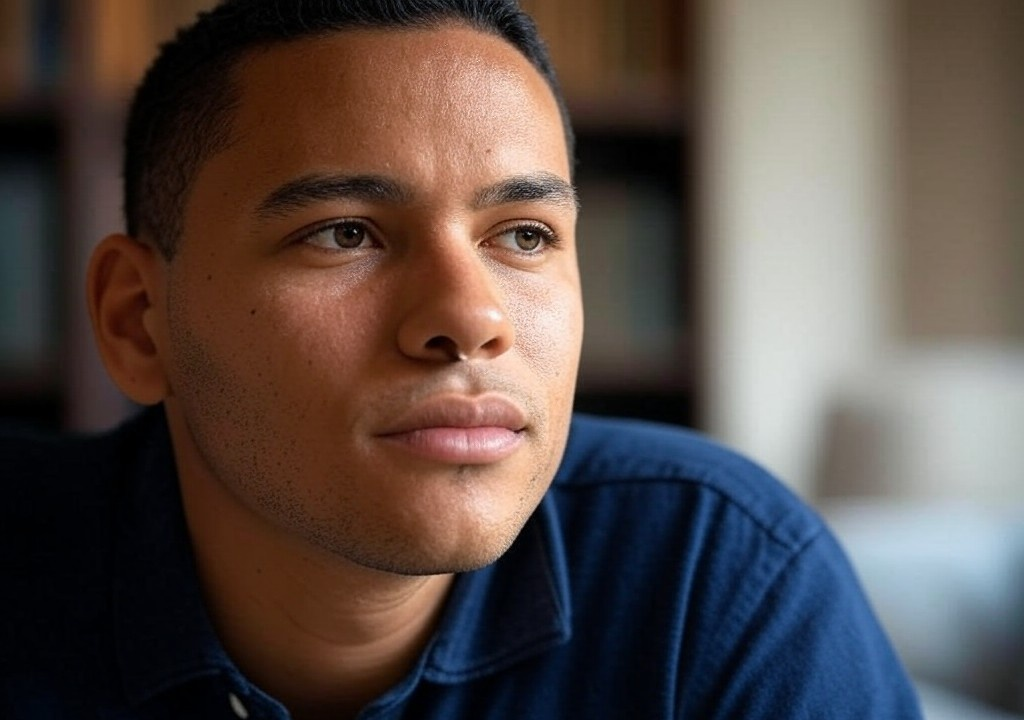The Challenge I Didn’t Think I’d Survive
There’s nothing like a family dinner to test your emotional endurance. I don’t mean the sweet, nostalgic kind where someone passes abuela's arroz con pollo recipe around the table. I’m talking about the kind of meal where things boil over faster than the pot of frijoles on the stove. You know, the Thanksgiving-style interrogation sessions where every single choice you’ve made in your life becomes fair game for whispered cross-examinations over the flan.
For me, this particular challenge wasn’t Thanksgiving. It was a random Sunday night. A new girlfriend (who we’ll call Anna) at the table. And yes, I was nervous. Cuba Libre in hand, praying my family would stick to polite conversation and leave the inquisition behind. Spoiler alert: they didn’t.
Let me paint the scene for you: twelve of us crammed into my parents’ cozy Miami kitchen, my grandma’s voice already competing with the salsa music reverberating off the walls, and I was suddenly thrust into hosting what felt like a bad rom-com crossed with a courtroom drama.
When Cultures Collide (Or, How My Abuela Became a Stunt Driver on the Relationship Autobahn)
Here’s the thing about Latinx families: they don’t just meet someone you’re dating—they adopt them immediately… or they don’t, which is much worse. Anna? She wasn’t Latinx. And by the end of our third appetizer (croquetas, naturally), I could practically feel my abuela wondering if my life choices had been influenced by a soap opera villain. She didn’t dislike Anna, but culturally, they were speaking entirely different languages—with or without the Spanish-to-English dictionary.
Imagine explaining fútbol vs. football to someone who thinks the World Cup’s only purpose is to ruin parking in their neighborhood. Now multiply that by a thousand, and you’re somewhere close to where we were.
It started innocently enough when Abuela asked Anna in a conspiratorial tone, “¿Tú sabes cocinar?” Translation: “Can you cook?” Anna politely said, “Yes, kind of!” A neutral-enough reply, but in Cuban culture, “kind of” is like saying, “I can sort of change a flat tire but might blow up the car.” Abuela’s eyes narrowed, and next thing you know, the table’s debating whether frozen picadillo counts as sacrilege.
Defend Your Life (Or At Least Your Relationship)
Halfway through dinner, the ultimate test descended upon me like a game show no one signed up for. My uncle—predictably blunt and fueled by his third mojito—leaned back, crossed his arms, and asked me the Latinx equivalent of a relationship polygraph:
“So, Martín… Is this serious?”
You know what’s fun? Nuanced conversations about commitment and intentions when someone stares at you like they’re calculating your odds of failure. I glanced at Anna, who looked like she’d telepathically scream “JUST SAY YES” if she could. I stammered something about “taking things one step at a time.”
Rookie mistake. That vague response is catnip to a family expert in controlled chaos. Cue Tía Marta launching into a monologue about how my third cousin met his wife in exactly the same way—and two seconds later, they’re married with twins!
Their questions kept coming faster than a Bad Bunny beat drop. Were we thinking of moving in together? How would Anna’s family feel about adopting Cuban traditions? Had I explained that no dinner was complete without a guava pastry? The only thing missing was a game show host announcing, “Can his relationship survive the lightning round?”
The Moment Everything Broke (Including Me)
Here’s where it went from amusingly stressful to plain overwhelming. Anna went to help clear dishes (a polite gesture, but a signal in my family that you’re ready to join the inner circle). My mom, ready to pounce, whispered to me, “If she can’t eat lechón like a real Cuban at Christmas, are you sure this will work?”
Y’all. Listen. When your mom starts asking character-defining questions about pork, you know this isn’t your average family meal anymore. It was like my entire family weaponized their love, well-meaning but suffocating, to remind me that my relationships reflect not just on me but all of them. Can Anna salsa dance? No? Then how could I possibly bring her to our annual Nochebuena party?
The pressure exploded somewhere deep in my chest, like I was a balloon stretched to max capacity. I excused myself to the bathroom and spent five minutes splashing water on my face, wondering if I could sneak out the backdoor without anyone noticing. Spoiler: Miami kitchens always face the patio, so there was no way I’d make it. Buzzkill.
Lessons in Surviving the Deep End of Familial Love
So, here’s what got me through what felt like a very public dissection of our relationship—and spoiler alert: the scene wasn’t as apocalyptic as it felt in the moment.
-
Understand Where They’re Coming From
Families, especially immigrant ones, want to protect their legacy. My family? Their biggest fears were rooted in love: that Anna wouldn’t “get us” or that she’d unknowingly push me to leave behind parts of me they worked so hard to build. Underneath the interrogation was pride, a little fear, and the hope that I’d find someone who shared my values—even if it wasn’t expressed gracefully. -
Prep Your Partner (But Not Too Much)
I’ll be honest: I under-prepared Anna. A quick “my family’s intense, but don’t worry” wasn’t enough. If you’re introducing someone to culture-heavy traditions, give them tools to connect. For us, food was a great bridge! By dessert, Abuela noticed Anna loved flan as much as I did, and their mutual appreciation softened the vibe. -
Call the Time-Outs When You Need Them
Leaving the table doesn’t make you a bad host. Whether it’s a quick bathroom break or stepping away with your partner, remember: you’re human. I needed five minutes alone to ground myself, to remind myself that the “you’re failing” narrative lived only in my head. -
Pivot From Defense Mode
Rather than feeling like I had to defend my choices, I reminded myself this was an opportunity to both educate and connect. Sure, that sounds lofty, but simply explaining why Anna and I worked helped shift the vibe. Once my family started to understand her strengths in her context (not Cuban norms), the anxiety evaporated.
When the Pressure Cools, the Connections Grow
That night? It stayed with me. I didn’t fully “survive” it by pretending everything went perfectly—it didn’t. But the messy moments pushed me to set boundaries (hello, polite redirection mid-question!) and lean into the bigger lesson: relationships with people and culture are about negotiation, not perfection.
In the weeks after, I noticed Anna didn’t just survive—they accepted her. Abuela started sending her random recipes to try, and now she brags that Anna can make a decent café Cubano.
To this day, I reflect on what that dinner taught me. Relationships, whether romantic or familial, aren’t meant to be easy. You’ll face challenges that leave you questioning your ability to navigate them. But by leaning into love, patience, and a little humor about the madness, you’ll find your way—sometimes with flan as the uniting factor.
And honestly? If you can survive the near-hostile Cuban family dinner, you can survive anything.




















